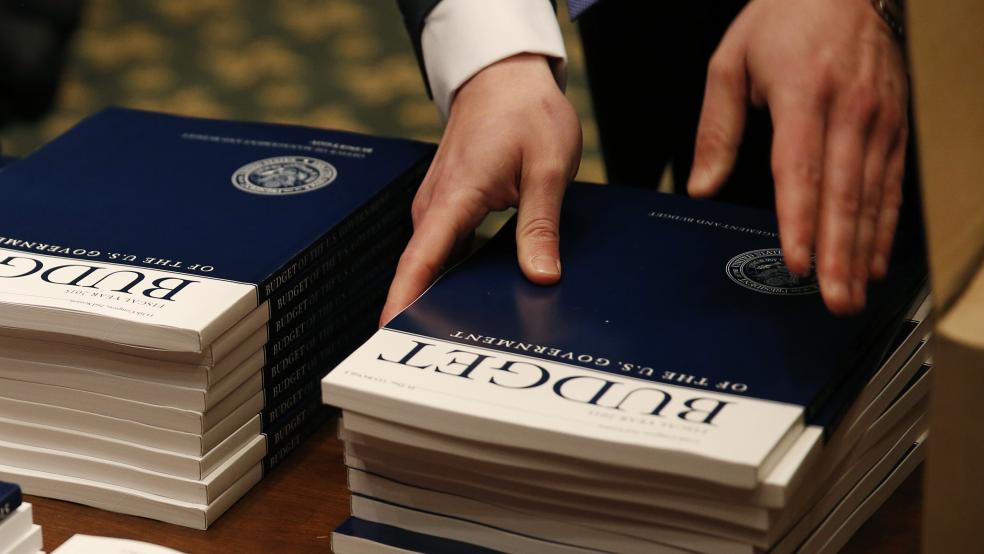At a high-profile economic summit in Washington Tuesday morning, political figures, academics, and private sector economists found themselves nodding in agreement over many of the problems facing the slow-growing U.S. economy. Citing a combination of “budget fatigue” and political gridlock, they conceded that few big-picture solutions are even on the table right now.
“We have been surprised and disappointed by the pace of the economic recovery,” said Douglas Elmendorf, director of the Congressional Budget Office in an appearance at the Atlantic Economy Summit. Original CBO estimates, he said, had pointed toward a “U-shaped” economy in which economic growth accelerated fairly rapidly out of the trough, but after three years of recovery, he said, the results have been underwhelming.
Related: Liberals’ New Goal: Boost Social Security Benefits
“We put too much weight not just on the post-war experience [of how recoveries behave], and on the rapid monetary policy response and rapid fiscal policy response,” Elmendorf said. However, three years into the recovery, he said, “We think that there is at this point still considerable slack left in the economy and the labor market.
The economy will return to full employment slowly, and probably over the next four years, he said, partly as a result of the “healing” of the economic wounds suffered during the great recession, but also because lawmakers have agreed on a less restrictive budget, which means that “the fiscal drag we have seen over the past few years won’t be in place.”
Elmendorf noted that the return to full employment won’t solve all of our problems. The growing cost of health care programs such as Medicare and Medicaid, and Social Security spending, are crowding out other spending in the near term. He noted that federal discretionary spending – money not dedicated to entitlement programs and other mandatory spending, is now at its lowest level as a share of GDP in 70 years. And federal debt service is expected to balloon in the medium term.
There are measures that could be taken to address these, Elmendorf said. “We have a choice as a society to either scale back those programs, to raise tax revenue, or to cut back on all other spending more than we already are,” he said. “Some combination of those three choices will be needed.”
“There are a lot of ways to proceed, but they tend to be unpleasant in one way or another,” he added, leaving it for the audience to judge how likely Congress is to take painful but necessary steps in an election year.
Related: Excise Tax on Big Banks Blasted by GOP
When Rep. Chris Van Hollen was asked about possible areas for bipartisan cooperation in Congress, he was able to cite fairly small-bore areas of potential compromise, including a potential expansion of the Earned Income Tax Credit to include more childless workers.
He said that there also appears to be fundamental agreement on corporate tax reform, including a reduction in rates, eliminating the double-taxation of profits earned overseas, but offered no scenario in which such a bill makes it to President Obama’s desk.
Van Hollen said that the Democrats will soon introduce a discharge petition in the House of Representatives to force a vote on the bipartisan comprehensive immigration reform legislation that has already passed the Senate.
That will make three bills that the Democrats have filed discharge petitions on, he noted, including an extension of federal unemployment insurance benefits and an increase in the minimum wage. Van Hollen said that on immigration and jobless aid at least, the Democrats believe that a majority exists in the House to pass the bill, but noted that House leadership has so far declined to bring either up for a vote.
Top Reads from The Fiscal Times:





